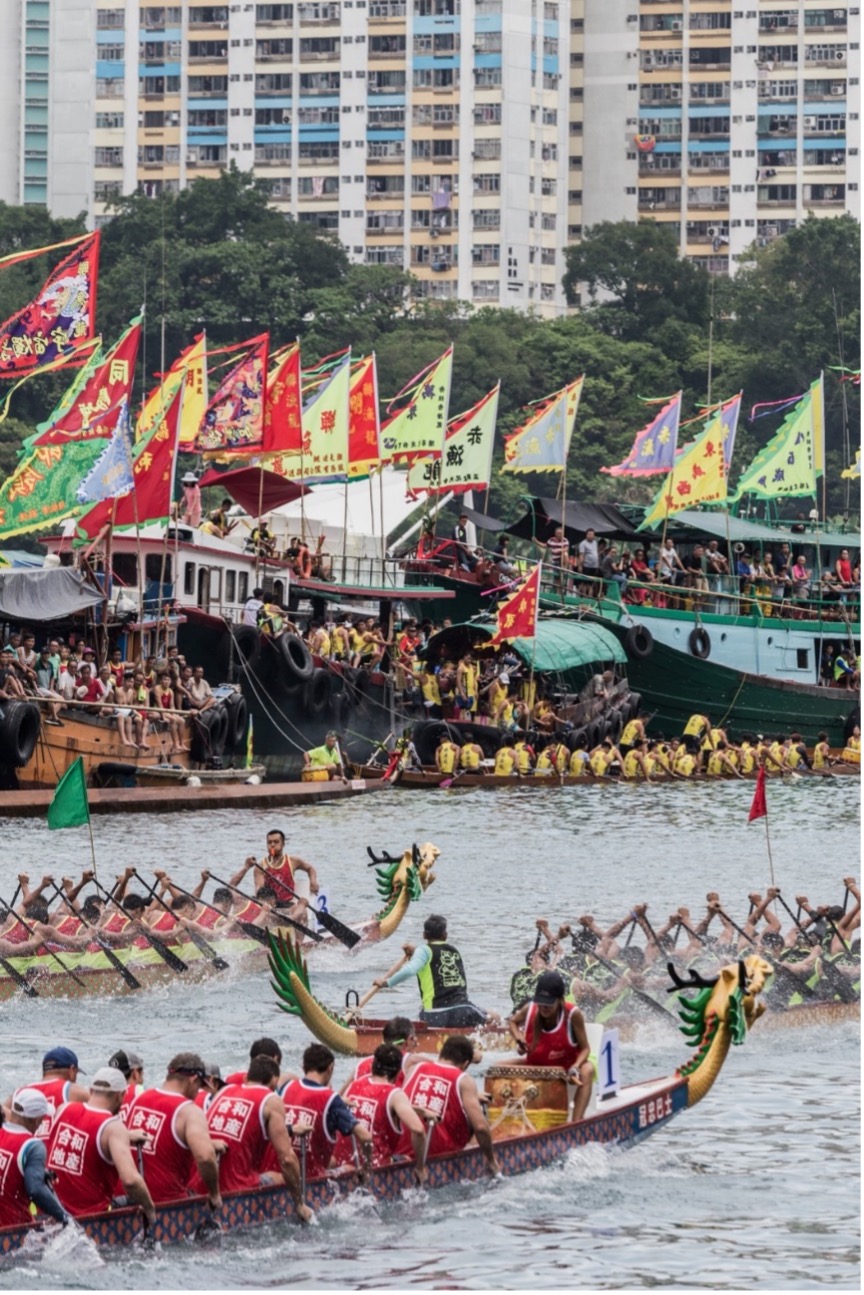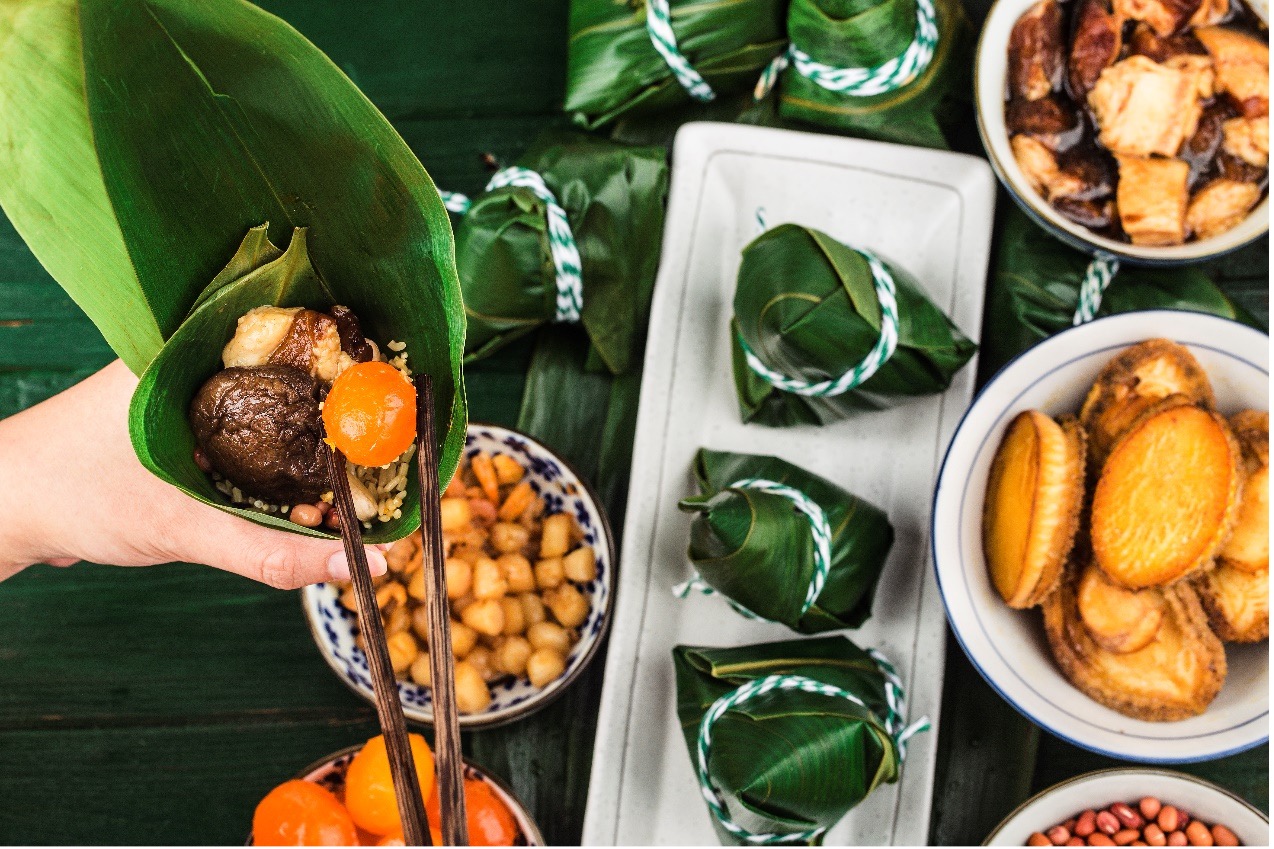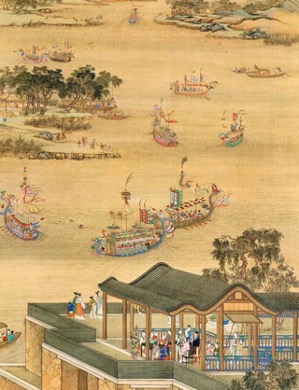Confucius
Institute
Dragon Boat Festival: More than just dragon boat racing
The Dragon Boat Festival, or Duanwu (Chinese: 端午; pinyin: duānwǔ), is a traditional Chinese holiday which occurs on the 5th day of the 5th lunar month and also known as “Double Fifth Festival” (Chinese: 五五节; pinyin: wǔwǔ jié). It usually corresponds to the late May or early June in the Gregorian calendar. Because of its cultural richness associated with humanity and nature, the Dragon Boat Festival was inscribed on the “Representative List of the Intangible Cultural Heritage of Humanity” by the United Nations Educational, Scientific and Cultural Organization (UNESCO) in 2009.
People in China and from some of the neighboring countries such as Vietnam and Japan do celebrate this festival for popular customs such as the dragon boat racing and eating Zongzi (Chinese: 粽子; pinyin: zòngzi).
About Dragon Boat Racing

The racing boat is made of wood and craved like a dragon. The drummer takes the front position and sets the pulse through drumbeats to energize the steering team in order to win the race.
In the south and east China’s coastal areas before the dragon boat races begin, a ritual ceremony with offerings will be held to pray for family safety and protection during summer’s typhoon season.
There are other water games during this festival. Duck-catching contests are held in many south and west provinces such as Fujian, Hunan, Guizhou, etc., as a tradition to showcase athletic prowess and swimming skills. This is said to be a way in ancient times to prepare youngsters for their career in the navy. These days, children are encouraged to play in the water with their parents as the "dragon boat water" is believed to bring good luck and happiness.
About Zongzi

Zongzi (Chinese: 粽子; pinyin: zòngzi) is the most popular festival food for Duanwu. It is a pyramid-shaped glutinous rice dumpling often wrapped in bamboo or reed leaves. Zongzi in different areas has different fillings. People in north China favors jujubes while sweetened bean paste or pork belly with egg yolk are preferred down south. Zongzi can be easily found in supermarkets these days. However, some families still keep the tradition going by making Zongzi at home.
Beyond the mainstream traditions, some old wives’ tale supposes that the 5th lunar month is considered unlucky as negative energies tend to peak during this period because of the increasing summer heat. Those poisonous centipedes, snakes, scorpions, lizards, and toads come out from hibernation, so people could also be prone to illness. Duanwu has become a special cleansing day that people would use herbs to ward off evil spirits and illness.
The Origin of Duanwu still a mystery

With a history of over 2,000 years, the origin of Duanwu still opens for debate.
Some believes that the festival is to commemorate the death of a patriotic poet Qu Yuan (ca. 340-278 BC). He lived in the ancient state of Chu during the Warring States period (ca. 475-221BC) of the Zhou dynasty (ca. 1050-221 BC). A cadet member of the Chu royal house, Qu served in the king’s court. He was persecuted and expelled from the court for disagreeing with the king on diplomatic affairs.
Upon receiving the news that his country was conquered by a foreign army, Qu Yuan, in despair, drowned himself in the Miluo River. Those local people who admired him rushed out in their boats trying to save him or at least retrieve his body. This is believed to be the origin of dragon boat races. When people could not find Qu Yuan’s body, they dropped sticky rice balls into the river, hoping the fish would eat the rice instead of his body. This is said to be the origin of Zongzi.
During the 28-year of his exile before his untimely death, Qu Yuan wrote a great deal of poetries to express his love to his country and its people, and his concerns about their fate. These poetries are still appreciated and recited today.
Some scholars, however, argued that Duanwu was originally a festival for a tribe who worshiped the dragon totem in the ancient Baiyue (Chinese: 百越; pinyin: bǎi yuè) region (the middle and lower reaches of the Yangtze River and the area to the south). Eating Zongzi and boat racing were both associated with dragons. The ancient Baiyue people considered themselves as "the descendants of the dragons". They held a grand totem festival on the 5th day of the 5th lunar month every year. This argument suggested that Duanwu had already existed when Qu Yuan was alive. One powerful evidence is that dragon boat racing was in fact described in one of Qu Yuan's poems.
Whatever that might be about the origin, Duanwu today is more about family ties, and community engagement to establish a harmonious relationship between humanity and nature, and building a better future!
Images sourced from freepik.com
The University of Newcastle acknowledges the traditional custodians of the lands within our footprint areas: Awabakal, Darkinjung, Biripai, Worimi, Wonnarua, and Eora Nations. We also pay respect to the wisdom of our Elders past and present.